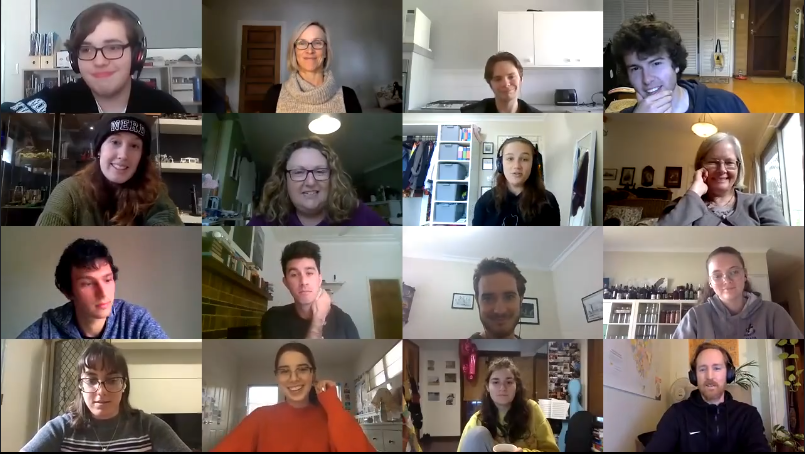
SUMMARY
Managing the COVID-19 pandemic has required teachers across the world to shift rapidly to online education. A wealth of resources have sprung up to provide tools and tips, such as UNESCO’s distance learning solutions and COVID-19 resources from the Interagency Network for Education in Emergencies. Yet we know vanishingly little about how students have experienced this shift or how they view their future learning. Capturing these perspectives is the purpose of a new WUN project on universities in the time of coronavirus. Martin Forsey and Kati Tonkin (both at The University of Western Australia), who are leading the project, spoke to WUN about how it came about.
STORY
‘There’s nothing magical about the number forty-five,’ pointed out Kati Tonkin (University of Western Australia). ‘Why should all content fit into forty-five minutes?’ Embracing this observation prior to the COVID-19 pandemic encouraged Tonkin and her UWA colleague Martin Forsey to flip their classrooms, facilitating more participatory methods and giving students greater control over material (Forsey and Page 2018; Tonkin, Page and Forsey 2019). Now, curious to see how these dynamics have played out during the pandemic, they are leading a new WUN research group that brings together seven universities across four continents to capture student experiences of learning during COVID-19.
Their collaboration demonstrates the opportunities for responsive research through the Worldwide Universities Network. When WUN’s COVID-19 funding call went out none of the partners knew each other. Since making connections, they have been building their relationships remotely. As Forsey observed, ‘it’s a new form of sociality. In some ways we’re living the very thing that we’re interrogating.’ Tonkin agreed: ‘it’s been really exciting and energising to have these Zoom meetings with people from different countries, different continents, talking about our common interest in this research and having a common focus but in very different contexts.’
Discussions amongst the project team are drawing out these divergences—between places with a sharp spread of the virus and those with slower transmission; places that never went into lockdown and those that have been reliant on virtual teaching for months. ‘This is a really fascinating example of comparative education,’ Forsey reflected. ‘It is already giving us insights into how systems are organised differently and how there have been different outcomes and impacts which are to do with history, geography, space and timing.’ Earlier research on online learning in global South contexts has highlighted equity challenges in connectivity and digital infrastructure (King, Pegrum and Forsey 2018), challenges that have been amplified by the pivot to distance learning. The project will also compare experiences across different academic disciplines.
The group anticipates several forms of data collection over time, some of which will see students in the role of researchers as well as participants. They are already documenting policies and announcements of universities and capturing discussion on social media platforms to see what debates are happening in the public sphere. To go deeper, the group will hold online focus groups with students and experiment with the ‘listening room’ method, where participants who know each other hold guided conversations without a researcher present. Finally, a survey will be created based on insights from data already gathered.
The group is in contact with another WUN-funded team studying the wellbeing impacts of COVID-19 at universities and their two projects will remain in dialogue as the situation unfolds. Forsey emphasised their joint contribution to aiding reflection as campus life resumes: ‘as the wheel turns, whenever that might be, what are people going to want to do and how will we make decisions about how to deal with the learning? To me it’s obvious we’ve got to offer both: we’ve got to be able to give the flexibility that some need and the collective effervescence of the face-to-face as well.’
—
Associate Professor Martin Forsey and Dr Kati Tonkin are Principal Investigators of the research group on university students in the time of corona (COVID-19). The research team is made up of researchers from National Cheng Kung University, University of Ghana, University of Southampton, University of Sheffield, University of Leeds, The Chinese University of Hong Kong, and The University of Western Australia. For more information see their WUN page.